In boost-asio, I realized that there was no easy way to have something that resembles a condition variable.
However, I realized that I could get something very similar using stackful coroutines (https://www.boost.org/doc/libs/1_66_0/doc/html/boost_asio/overview/core/spawn.html), while using an io_context as a 'queue' for completion tokens. Below is my approach:
#include "asio_types.hpp"
#include <atomic>
#include <iostream>
class async_pending_queue {
public:
async_pending_queue()
: pending_handlers_(0), strand_(pending_queue_), wg_(asio::make_work_guard(pending_queue_)) {}
template <typename CompletionToken>
auto async_submit(
CompletionToken &&token,
std::function<void(void)> atomic_action = [] {}) {
auto init = [this, &atomic_action](auto completion_handler) {
auto posted_lambda = [handler = std::move(completion_handler),
this]() mutable {
pending_handlers_--;
asio_sys_err ec;
handler(ec);
};
post(strand_,std::move(posted_lambda));
pending_handlers_++;
atomic_action();
};
return asio::async_initiate<CompletionToken, void(asio_sys_err)>(init,
token);
}
int pending_count() { return pending_handlers_.load(); }
// It may not run 1 and run 0
bool try_run_one() {
auto cnt = pending_queue_.poll_one();
std::cout << "completion token result" << cnt << std::endl;
bool ret = (cnt == 1);
return ret;
}
private:
std::atomic<unsigned int> pending_handlers_;
asio_ioctx pending_queue_;
asio_ioctx::strand strand_;
decltype(asio::make_work_guard(pending_queue_)) wg_;
};
Here, one simply uses calls my_async_pending_queue.async_submit(yield), if calling from a stackful coroutine. The coroutine can be continued by calling my_async_pending_queue.try_run_one().
Using this, I wanted to build a 'memory checker'. It has two functions -> request_space and free_space. A coroutine calls request_space, which may block if there is no space left. Meanwhile, another thread / coroutine can call free_space, which will run blocked coroutines if possible.
I built a toy memory checker wrapper as follows:
#ifndef MEM_CHECK_HPP
#define MEM_CHECK_HPP
#include <cstddef>
#include <mutex>
#include <queue>
#include <boost/asio.hpp>
#include <boost/asio/spawn.hpp>
namespace asio = boost::asio;
using asio_ioctx = asio::io_context;
using asio_sys_err = boost::system::error_code;
using asio::yield_context;
#include "async_pending_queue.hpp"
class MemoryChecker {
public:
using bytes_cnt = size_t;
MemoryChecker(asio_ioctx &ioctx, bytes_cnt total_mem = 1024, bytes_cnt initial_fill = 0);
// This requests some space, and possibly yields;
void request_space(bytes_cnt cnt, yield_context yield);
void free_space(bytes_cnt cnt);
private:
bytes_cnt get_available_mem();
const bytes_cnt total_mem_;
bytes_cnt mem_used_;
std::queue<bytes_cnt> request_queue_;
async_pending_queue request_routines_;
std::mutex lock_;
asio_ioctx::strand fifo_strand_;
asio_ioctx &completion_ioctx_;
};
inline MemoryChecker::MemoryChecker(asio_ioctx &ioctx, bytes_cnt total_mem,
bytes_cnt initial_fill)
: total_mem_(total_mem), mem_used_(initial_fill), request_queue_{}, lock_{},
request_routines_{}, completion_ioctx_(ioctx), fifo_strand_(ioctx) {}
inline MemoryChecker::bytes_cnt MemoryChecker::get_available_mem() {
assert(total_mem_ >= mem_used_);
return total_mem_ - mem_used_;
}
inline void MemoryChecker::request_space(bytes_cnt cnt, yield_context yield) {
// if (cnt > total_mem_) throw logic_error
lock_.lock();
assert(cnt <= total_mem_);
assert(cnt > 0);
if (request_queue_.empty()) {
assert(request_routines_.pending_count() == 0);
if (get_available_mem() >= cnt) {
// We bypass the pending queue
mem_used_ += cnt;
lock_.unlock();
return;
}
}
assert(request_queue_.size() == request_routines_.pending_count());
std::cout << "Pushing " << cnt << std::endl;
request_queue_.push(cnt);
auto wg = asio::make_work_guard(completion_ioctx_);
request_routines_.async_submit(yield, [this] { lock_.unlock(); });
auto oldest_req{request_queue_.front()};
assert(cnt == oldest_req);
request_queue_.pop();
mem_used_ += cnt;
assert(request_queue_.size() == request_routines_.pending_count());
asio::post(fifo_strand_, yield);
}
inline void MemoryChecker::free_space(bytes_cnt cnt) {
{
std::lock_guard<std::mutex> lg{lock_};
mem_used_ -= cnt;
// Here, we own the lock, and free as many coroutines as we can
while (true) {
if (request_queue_.size() == 0) {
std::cout << "No pending requests. Bailing" << std::endl;
break;
}
assert(request_queue_.size() == request_routines_.pending_count());
auto oldest_req{request_queue_.front()};
auto available_mem{get_available_mem()};
if (available_mem < oldest_req) {
std::cout << "Oldest request is larger than available_mem. Bailing" << std::endl;
break;
}
assert(request_routines_.try_run_one() == true);
}
}
}
#endif /* MEM_CHECK_HPP */
Here is a test program that can run it:
#include "mem_check.hpp"
#include <thread>
#include <unistd.h>
constexpr size_t mc_size{4};
asio_ioctx ioctx;
size_t total{0};
MemoryChecker mc{ioctx, mc_size};
void requestor_coroutine(size_t rq,yield_context yield) {
asio::steady_timer t(ioctx);
while (true) {
total += rq;
mc.request_space(rq, yield);
std::cout << "Got requested space ";
asio_sys_err ec;
}
}
int main() {
asio::spawn(ioctx, [](yield_context yield) { requestor_coroutine(1,yield); });
asio::spawn(ioctx, [](yield_context yield) { requestor_coroutine(2,yield); });
asio::spawn(ioctx, [](yield_context yield) { requestor_coroutine(3,yield); });
asio::spawn(ioctx, [](yield_context yield) { requestor_coroutine(4,yield); });
std::thread t([] { ioctx.run(); });
while (true) {
getchar();
std::cout << total << std::endl;
if (total > 0) {
std::cout << "freeing" << std::endl;
mc.free_space(1);
total -= 1;
}
}
t.join();
}
Finally, the problem we face is as follows. When we run the program, the assertion total_mem >= mem_used_ fails. On some further investigation, I realized that our completion token was being called even when we do not call try_run_one, which was very weird.
Finally, somewhat more surprisingly, If I replace post(stand_,std::move(posted_lambda)); by post(pending_queue_,std::move(posted_lambda));, things seem to work. However, the asio documentation says that only strands guarantee a FIFO execution order. I am not sure if using a simple io_context will work as a FIFO queue (even though it seems to in these examples).
Any inputs would be helpful - I am happy to hear the problem in this implementation, as well as other implementations (for example, using a std::queue as a proper queue instead of this io_context hack).

